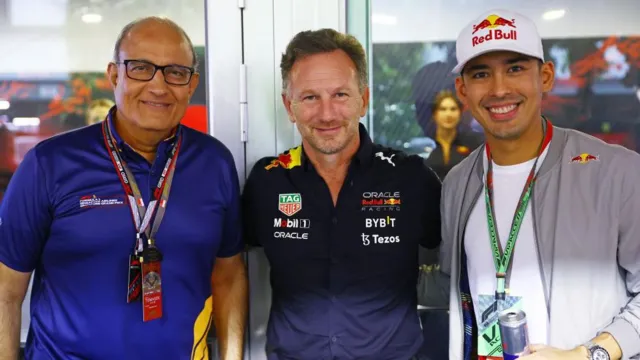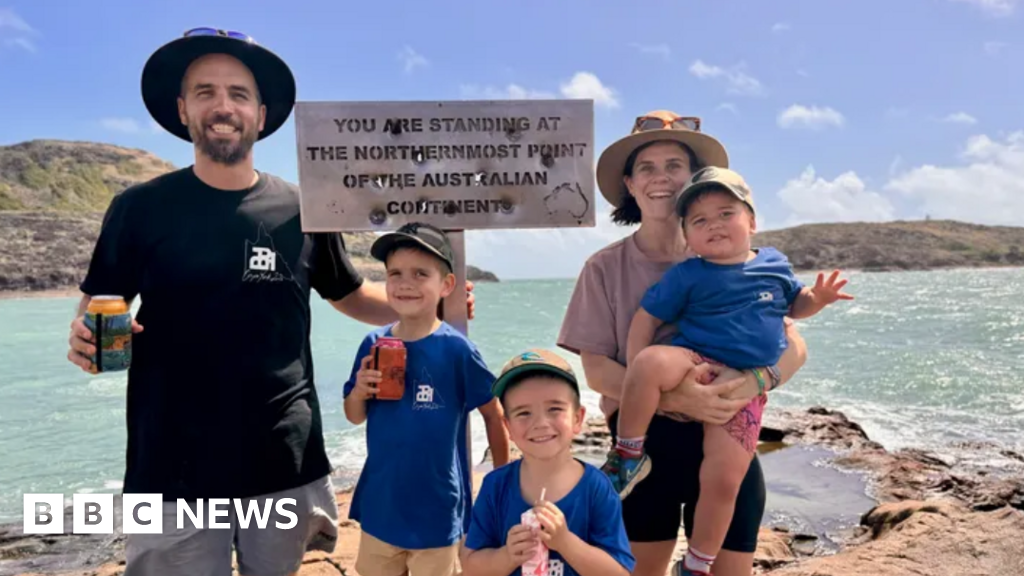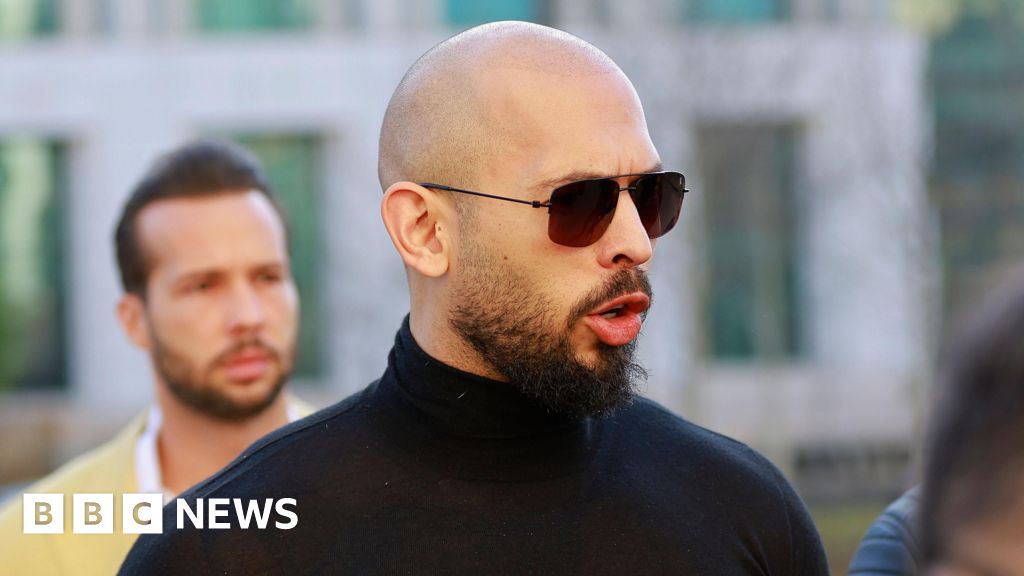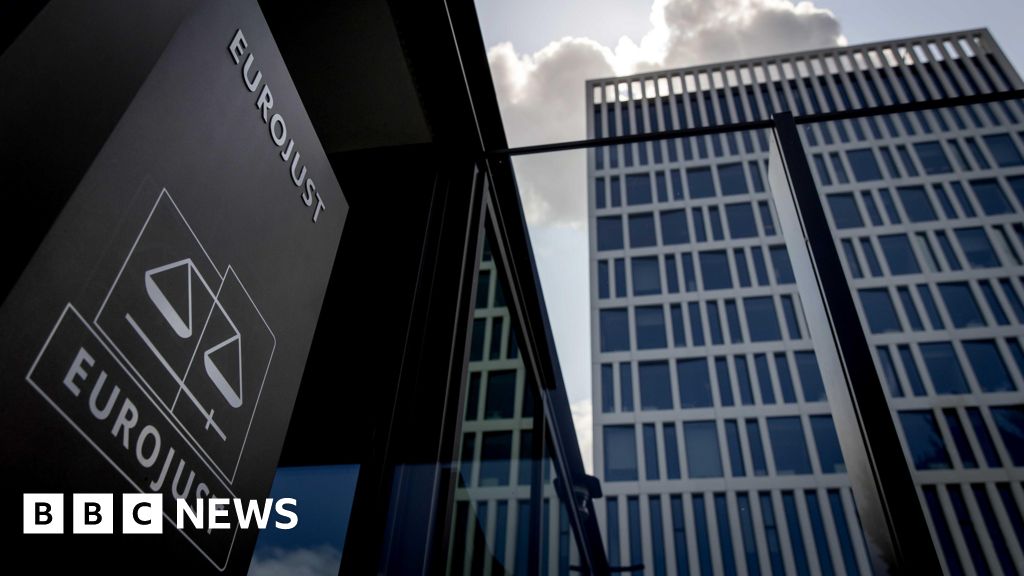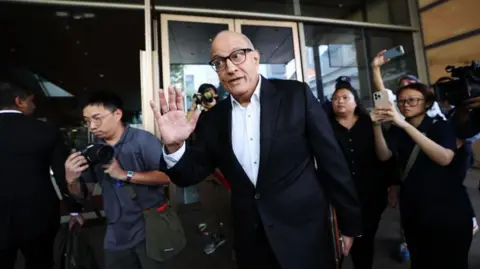 EPA
EPASingapore’s former transport minister has been convicted of receiving gifts while in office, after he pleaded guilty before a local court.
Subramanian Iswaran, 62, was initially charged with corruption, but prosecutors amended these charges at what was supposed to be the start of his trial on Tuesday.
A corruption case involving a public official is rare in Singapore, a financial hub that prides itself with its squeaky clean image, and Iswaran’s case has gripped the nation.
Iswaran now faces a fine or up to two years in jail for each charge of receiving gifts or gratifications, compared to a corruption conviction that carries a fine of up to $100,000 or up to seven years in prison.
Iswaran is the first political office-holder in Singapore to be tried in court in the past 50 years.
He is best known for bringing the Formula 1 Grand Prix to the South East Asian island nation. The most recent edition wrapped up just days before his court appearance.
Charge sheets revealed that he was gifted more than S$403,000 ($311,882; £234,586) worth of flights, hotel stays, musicals and grand prix tickets.
Shortly after the charges were issued in January, Iswaran pleaded not guilty to all the allegations and quit his post in government, saying he would focus on clearing his name.
Property tycoon Ong Beng Seng was named in the charges, often as the party offering the alleged bribes.
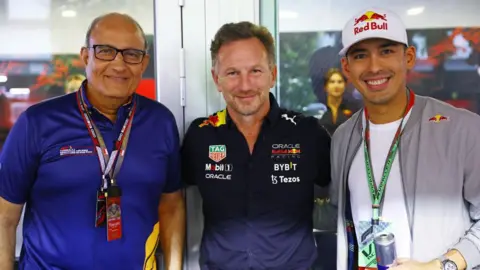 Getty Images
Getty ImagesMr Ong owns the rights to the Singapore Grand Prix, while Iswaran was advisor to the race’s steering committee.
Mr Ong’s company Hotel Properties also has 38 hotels and resorts operating under brands including Four Seasons, Hard Rock Hotels and Concorde, according to the London Stock Exchange’s Refinitiv Eikon.
Mr Ong was arrested last year along with Iswaran but has not been charged with any offence. He was initially scheduled to take the stand as a prosecution witness in Iswaran’s trial.
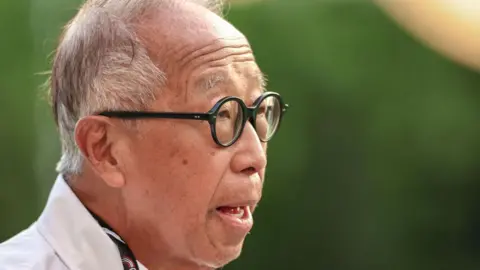 Getty Images
Getty ImagesIn March of this year, Iswaran was handed eight additional charges that allege he obtained items such as a Brompton bicycle, a set of golf clubs and whisky from another figure: construction company boss Lum Kok Seng.
Mr Lum’s company is involved with a number of government infrastructure projects around Singapore, which were awarded while Iswaran was Transport Minister. He has not been charged either.
While in government, Iswaran held multiple portfolios in the prime minister’s office: in home affairs, communications and, most recently, the transport ministry.
But it was during his long stint in the trade and industry ministry that he gained prominence, playing a role in developing Singapore’s tourism landscape in the late 2000s and 2010s.
This was a time when the government poured in vast resources and courted billions in foreign investment to build casinos, hotels, tourist attractions and events like the F1 Grand Prix.
Iswaran was a familiar face on the podium, often handing out trophies to drivers amid celebratory sprays of champagne.
The case against Iswaran is one of a series of political scandals that have rocked the ruling People’s Action Party (PAP), which has long touted its strong stance against corruption and amoral behaviour.
In 2023, the government was rocked by a separate corruption probe into the properties of two other ministers, which eventually cleared them of wrongdoing, as well as two lawmakers’ resignation over an extramarital affair.
Singapore’s lawmakers are among the highest-paid in the world, with some ministers earning more than S$1 million ($758,000). Leaders justify the handsome salaries by saying it combats corruption.
Prior to last year, the most recent case of a politician facing a major corruption probe was in 1986, when national development minister Teh Cheang Wan was investigated for accepting bribes. He took his own life before he was charged.
Before that, former minister of state for environment Wee Toon Boon was sentenced to 18 months jail in 1975 for a case involving more than $800,000.
